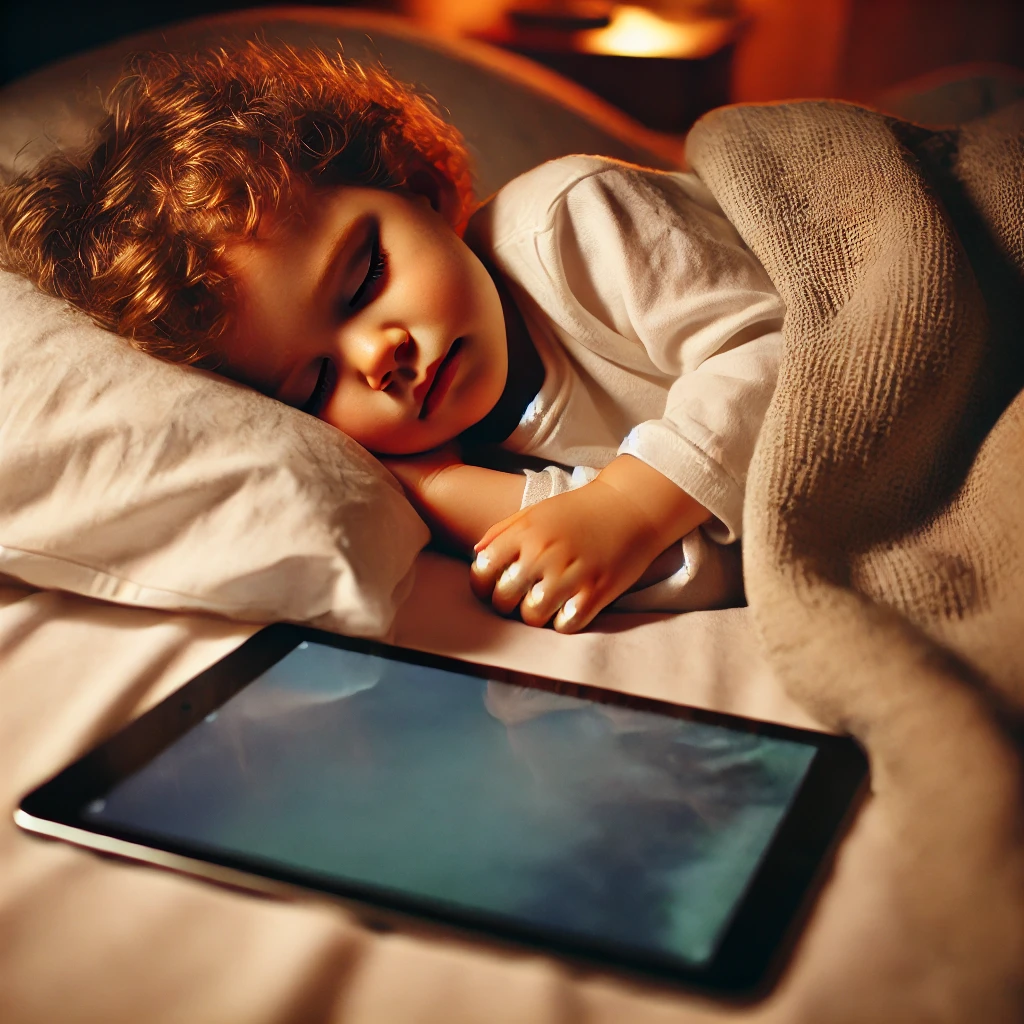A randomized clinical trial, performed by University of London, evaluated preliminary effectiveness of a parent-administered screen time intervention in toddlers aged 16-30 months. The study aimed to assess whether removing screen time in the hour before bedtime improves sleep and attention outcomes.
Key Findings:
Sleep Outcomes: Removing screen time before bed showed small to moderate improvements in sleep efficiency, reduced night awakenings, and slight changes in daytime nap duration. However, it did not significantly impact total nighttime sleep duration.

Attention Outcomes: No significant differences were found in objective attention measures between groups. However, parent-reported effortful control and inhibitory control improved in the active control group (bedtime box only), suggesting that bedtime activities may influence attention-related behavior
Conclusion:
The findings support pediatric recommendations to avoid screen time before toddler bedtime. The intervention was practical and showed modest benefits for sleep. However, a full-scale confirmatory trial is needed to validate these preliminary results before widespread adoption by parents and pediatricians.
References:
Hannah Pickard, PhD1; Petrina Chu, MSc2,3; Claire Essex, MSc1; et al
- 1Centre for Brain and Cognitive Development, Birkbeck, University of London, London, United Kingdom
- 2Department of Biostatistics and Health Informatics, Institute of Psychology, Psychiatry and Neuroscience, King’s College London, London, United Kingdom
- 3King’s Clinical Trials Unit, Institute of Psychology, Psychiatry and Neuroscience, King’s College London, London, United Kingdom
- 4Department of Psychology, University of Bath, Bath, United Kingdom
- 5Centre for Brain and Behaviour, Department of Psychology, Queen Mary University of London, London, United Kingdom
- 6Creative Computing Institute, University of the Arts London, London, United Kingdom
JAMA Pediatr. 2024;178(12):1270-1279. doi:10.1001/jamapediatrics.2024.3997
Complete article at Jama Network.
